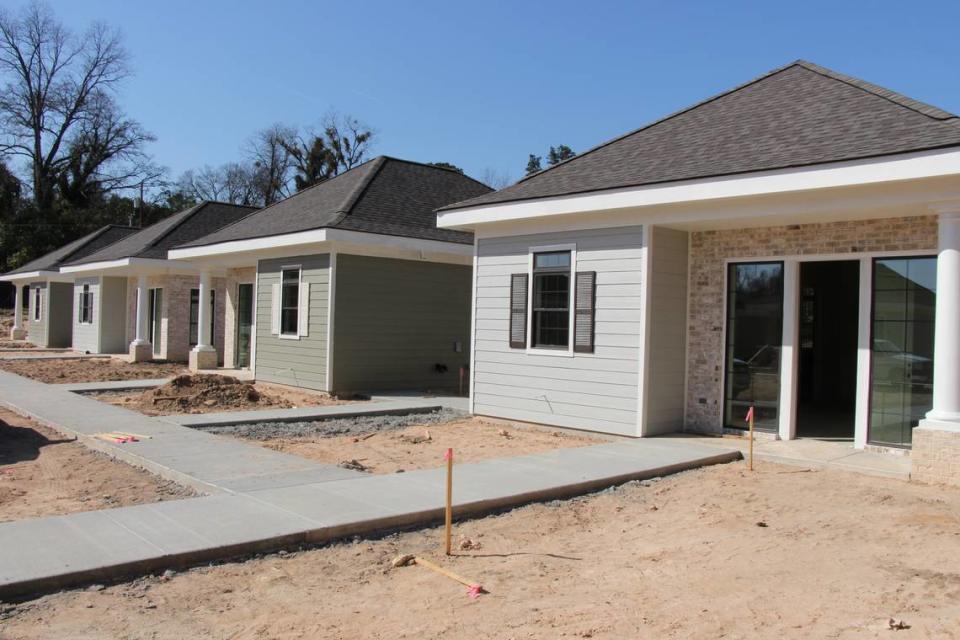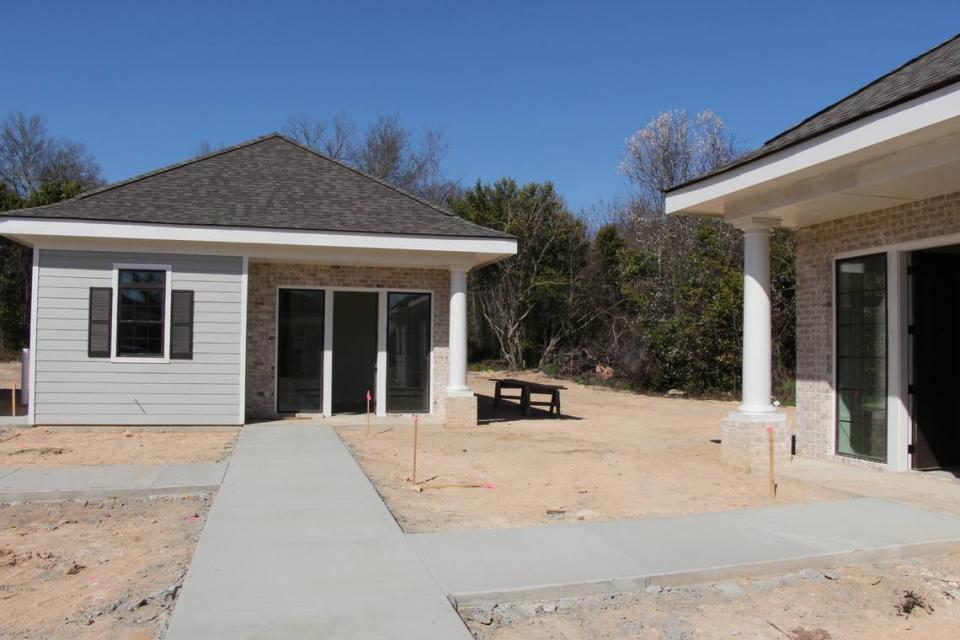As Macon’s homeless population rises, one group is combating the issue — with tiny cottages
In January, the Macon-Bibb County Homeless Coalition, a collective of nonprofits working to shelter and house that population, spent a week collecting data to determine an estimate of homeless in the area.
The coalition tallied 461 unsheltered homeless people — a 250% increase from the 140 it counted in a three-day count in 2022, according to The Macon Newsroom.
But, one organization is doing its part to address the rising numbers.
In July 2023, River Edge Behavioral Health began construction on the Tiny Cottages of Macon. The project includes 10 tiny homes being built in east Macon, which will provide permanent supportive housing for individuals who meet the HUD definition of homelessness and have a documented mental health or substance use disability.

Both Phase I and Phase II were paid for by River Edge Foundation and a grant from Macon-Bibb County.
Residents will receive wraparound services to help them remain stably housed and to help them build a better life for themselves, according to Kelly McWilliams, River Edge director of communications and marketing.
“There is a need to help the homeless in Macon, especially among populations with a mental health or substance use disability,” she said. “It is difficult to recover if you do not have safe and affordable housing. This project will be another step toward helping address those needs.”
Macon-Bibb County is the only metropolitan area of its size in Georgia that has no official Continuum of Care program and the conglomeration of 152 counties and related service providers in which Macon-Bibb finds itself has no strategic plan or centralized manager.
McWilliams said //these tiny homes help in the recovery process.
“Recovery is possible, but it is difficult to recover or improve your circumstances if you do not have safe and affordable housing, and everyone needs safe and affordable housing,” she said. “Housing helps give people some stability that they can then build off of.”
“Our permanent supportive housing helps us to make life better for people and helps us fulfill our mission to deliver services and supports that promote recovery, resilience, and inclusion with dedication and pride,” McWilliams said. “And again, this project will be another step to help address the need to assist those who are homeless in Macon.”
McWilliams said Phase I, the first five homes, is nearly complete on the exterior and the interior is coming along nicely, and Phase II, the second five homes, is catching up quickly.
“Phase II homes currently have concrete being laid down for sidewalks and porches, beautiful columns are being put in place, and soon, drywall will be put up and interior painting will begin,” she said.

To become a resident, an individual needs to be homeless and have a disability by the standards of HUD. Referrals must come through the Macon-Bibb Economic Opportunity Council (EOC).
The Permanent Supportive Housing Program utilizes a low-barrier intake process. The funding to cover rent for these homes comes from the Department of Community Affairs. If individuals do have a job or have income from either Social Security or Social Security Disability Insurance, then 30% of their income goes toward their rent.
Individuals can stay in their homes permanently as long as they abide by the lease and the house rules.
The estimated completion date for the project is May.

